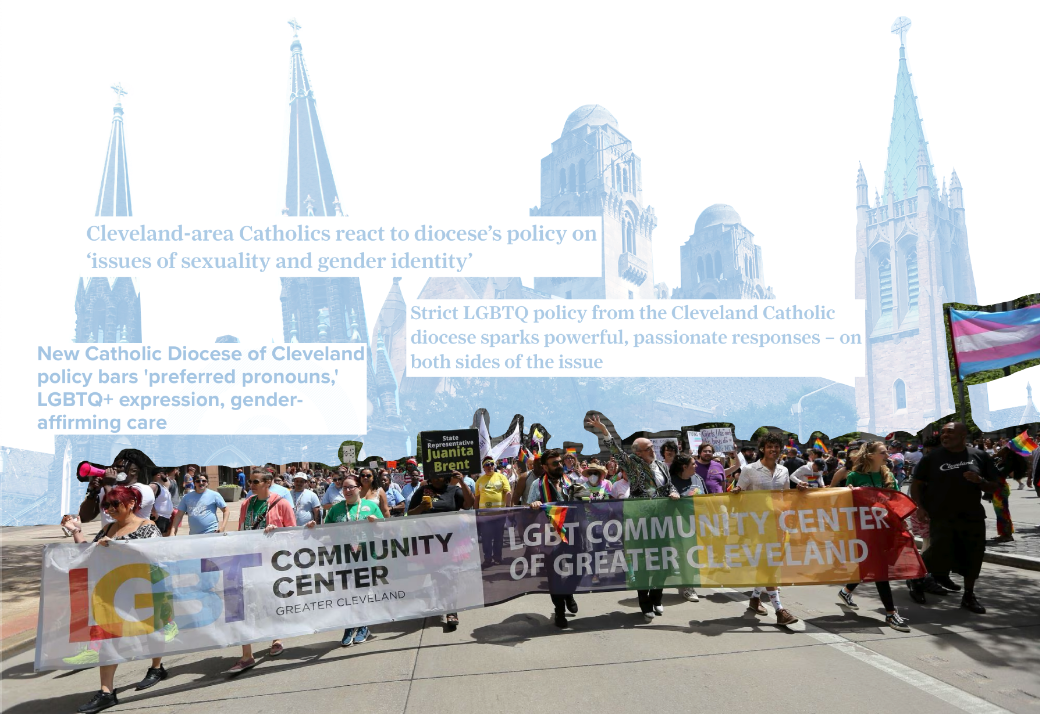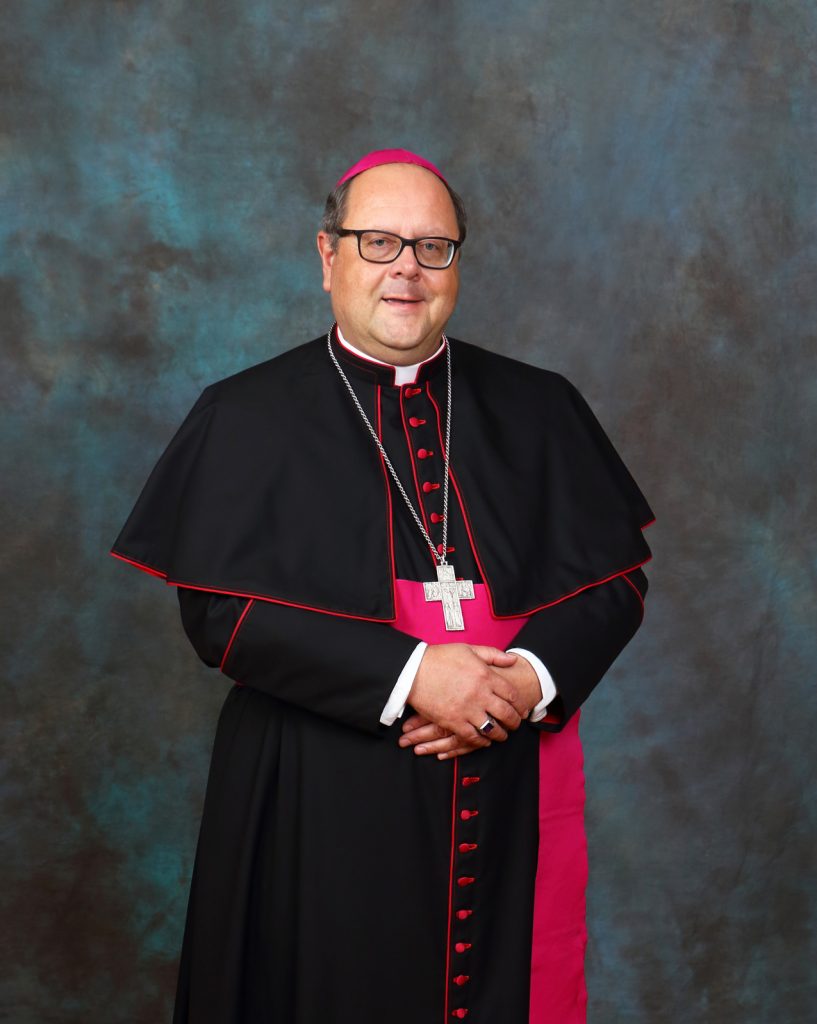
Gabriel McCreath
Contributing Writer

On Sept. 1, Bishop Edward C. Malesic of the Catholic Diocese of Cleveland implemented a new policy titled “Parish & School Policy on Issues of Sexuality and Gender Identity” that outlines how diocese-run churches and schools must handle certain matters relating to LGBTQ+ life. The policy includes rules about the use of pronouns and names, use of bathrooms and gender-designated facilities, gender expression through appearance and sex/gender transition, among other topics.
The cover letter and text of the policy can be viewed online or downloaded as PDFs through links on the “Human Sexuality & Gender” page on the Diocese of Cleveland’s website.
The policy text states that it “applies to all offices, parishes, parish schools and diocesan schools of the Catholic Diocese of Cleveland…as well as their employees, personnel, volunteers, students and youth participating in parish or institutional faith formation.” The schools directly affected by this policy include 79 elementary schools and five high schools. It does not include schools run by Catholic religious orders; for example, St. Ignatius High School is run by the Jesuit order, and thus is not directly affected. The College of Wooster is also not directly affected by this policy.
Among other rules, the policy includes the following: students and staff of affected institutions may not undergo gender-affirming care, use pronouns different from those associated with a person’s sex assigned at birth or take any other steps to undergo social or medical gender transition. Additionally, staff of affected institutions are required to notify students’ parents if they suspect a student may be questioning their gender. At parish or school dances and mixers, participants may not attend with a date whose sex assigned at birth is the same as their own, nor may they express attraction or romantic interest in people whose sex assigned at birth is the same as their own. Staff and students of affected institutions also may not display pride flags or other symbols of LGBTQ+ advocacy.
The policy was met with a mixture of support and pushback from Cleveland-area Catholics. In a Cleveland.com story on the policy, one Catholic in support of the policy commented that “it’s important for everybody to be on the same page…and for people to know what the expectations are.”
However, the policy has also garnered many negative reactions from members of the LGBTQ+ community, Catholics and those who identify as both Catholic and LGBTQ+. “It creates a real chilling effect in both schools and parishes,” said Ben Huelskamp, executive director of LOVEBoldly, an affirming Christian LGBTQ+ advocacy nonprofit based in Ohio.
Gulnar Feerasta, senior director of programs at the LGBT Community Center of Greater Cleveland, said, “Our first reaction was really heartbreak and a lot of sadness. Especially with the increase in the anti-LGBT rhetoric, the different types of legislation that are coming down the pipe.”
On Sept. 14, the LGBT Community Center of Greater Cleveland started a change.org petition urging the Diocese to reverse the policy, stating that “the repressive culture and othering that will be fostered further by the hurtful policies documented in this statement is a massive setback in creating an affirming community in Northeast Ohio.” Of the 1,548 supporters of the petition, many identified as Catholic, LGBTQ+ or both. Many also left comments stating their reasons for signing the petition.
One supporter of the petition commented: “I am a Catholic and a regular church-goer. I provide financial support to my parish, Catholic schools and various Catholic charities. I believe the Diocese’s recent policy statement is entirely wrong and that it is inconsistent with the faith that I was taught in Catholic schools…God created [transgender people] as they are and it is not up to us to condemn them or dictate how they should live their lives…This policy is a political statement, not a moral one.”
Another supporter commented: “Many Catholics, like myself, have a conscience that tells them this policy is not Christlike. It is needlessly harsh and an overstep from the Diocese. I encourage Catholics to sign this petition, to write to their parishes, to have hard conversations in the interest of protecting the health, safety and joy of our LGBTQ+ family and friends.”
The petition is now closed due to confusion over change.org’s donation policy.
Cleveland Mayor Justin Bibb has also commented on the Diocese’s policy. “As a Christian, the Diocese’s policy is a shocking betrayal of the Church teachings that have shaped who I am today,” he said. “For me, faith is about universal love and acceptance.”
Susan Russell, President of Dignity Northeast Ohio — an organization that supports and advocates for LGBTQ+ Catholics — called on Catholics in the Cleveland area to voice their concerns over the new policy. “A majority of Catholics want our church to be fully welcoming of LGBTQ+ people,” Russell said. “These are our siblings, our parents, our children, our friends and members of our faith communities. We know they are gifted, and blessings to our faith communities and our society. This type of exclusionary policy wounds the Body of Christ.”
